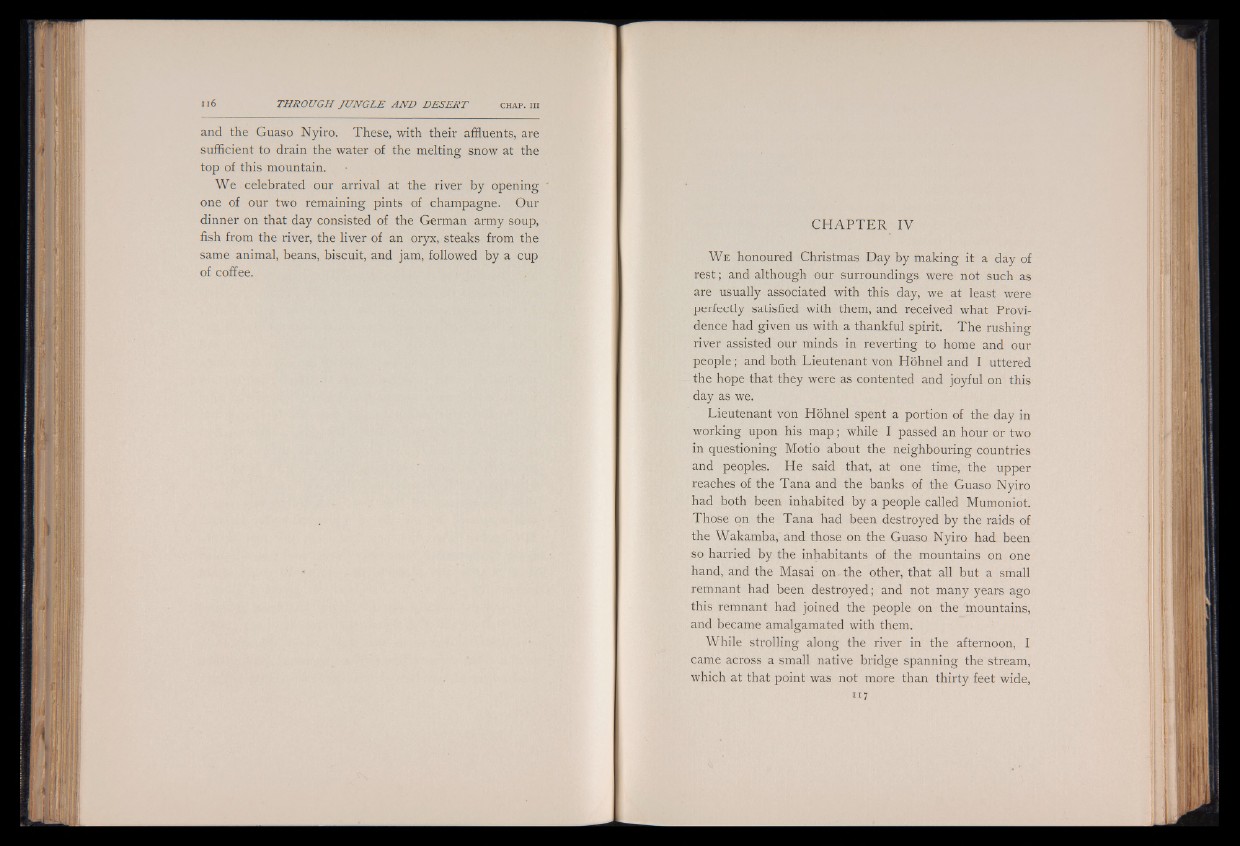
and the Guaso Nyiro. These, with their affluents, are
sufficient to drain the water of the melting snow at the
top of this mountain.
We celebrated our arrival at the river by opening
one of our two remaining pints of champagne. Our
dinner on that day consisted of the German army soup,
fish from the river, the liver of an oryx, steaks from the
same animal, beans, biscuit, and jam, followed by a cup
of coffee.
CH A P T E R IV
We honoured Christmas Day by making it a day of
rest; and although our surroundings were not such as
are usually associated with this day, we at least were
perfectly satisfied with them, and received what Providence
had given us with a thankful spirit. The rushing
river assisted our minds in reverting to home and our
people ; and both Lieutenant von Hohnel and I uttered
the hope that they were as contented and joyful on this
day as we.
Lieutenant von Hohnel spent a portion of the day in
working upon his map; while I passed an hour or two
in questioning Motio about the neighbouring countries
and peoples. He said that, at one time, the upper
reaches of the Tana and the banks of the Guaso Nyiro
had both been inhabited by a people called Mumoniot.
Those on the Tana had been destroyed by the raids of
the Wakamba, and those on the Guaso Nyiro had been
so harried by the inhabitants of the mountains on one
hand, and the Masai on,the other, that all but a small
remnant had been destroyed; and not many years ago
this remnant had joined the people on the mountains,
and became amalgamated with them.
While strolling along the river in the afternoon, I
came across a small native bridge spanning the stream,
which at that point was not more than thirty feet wide,